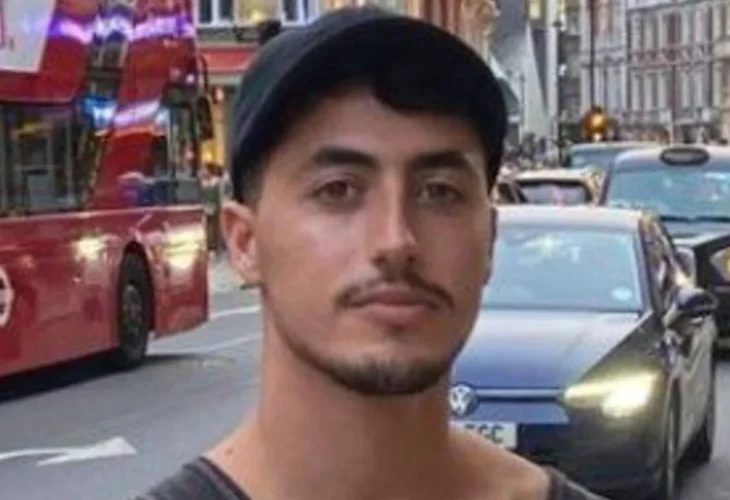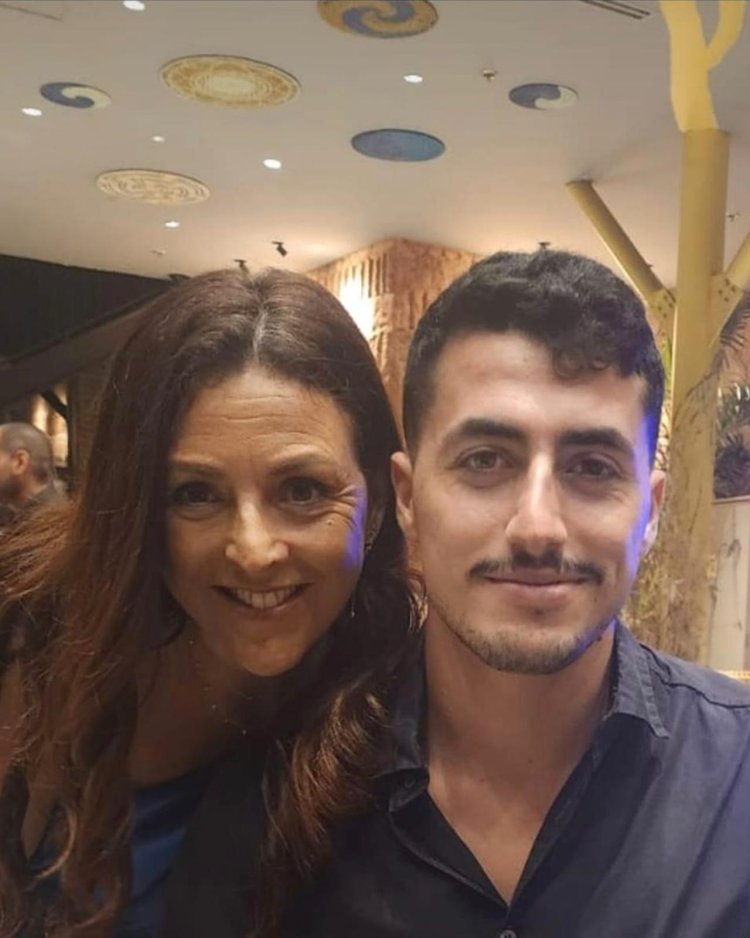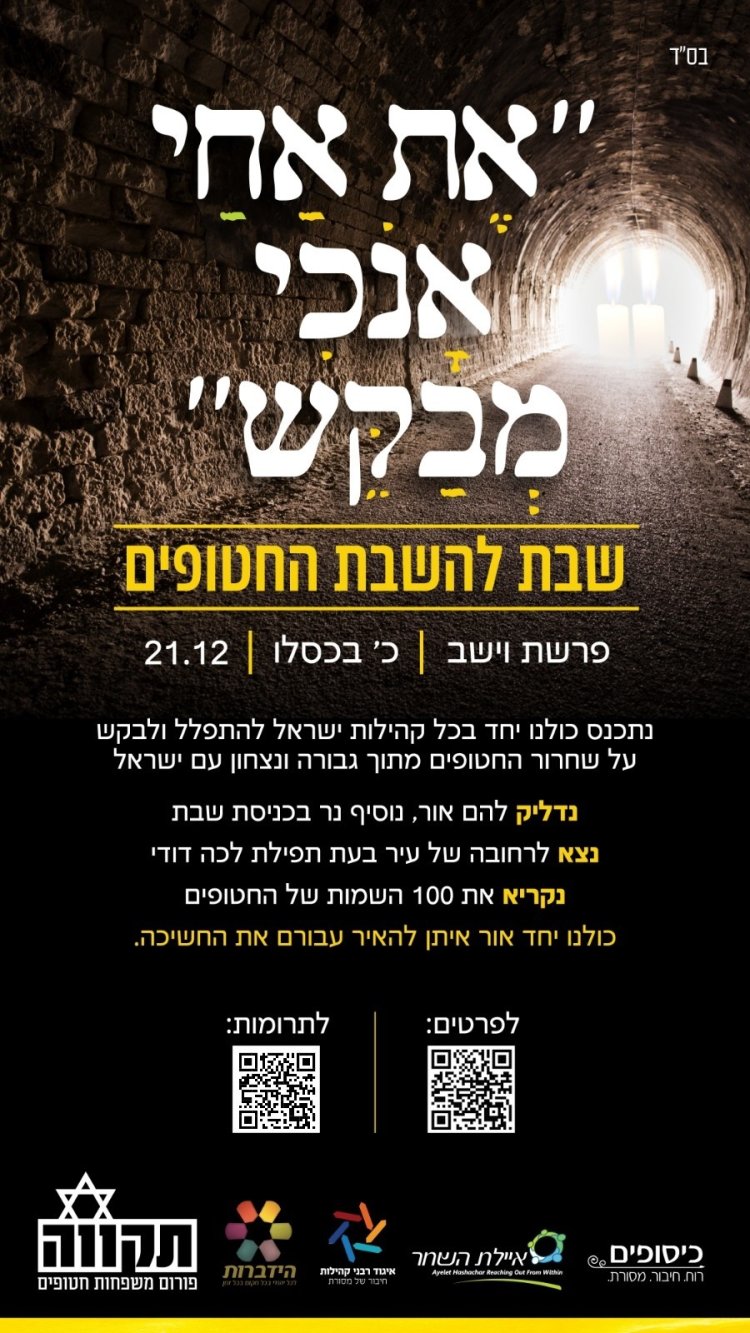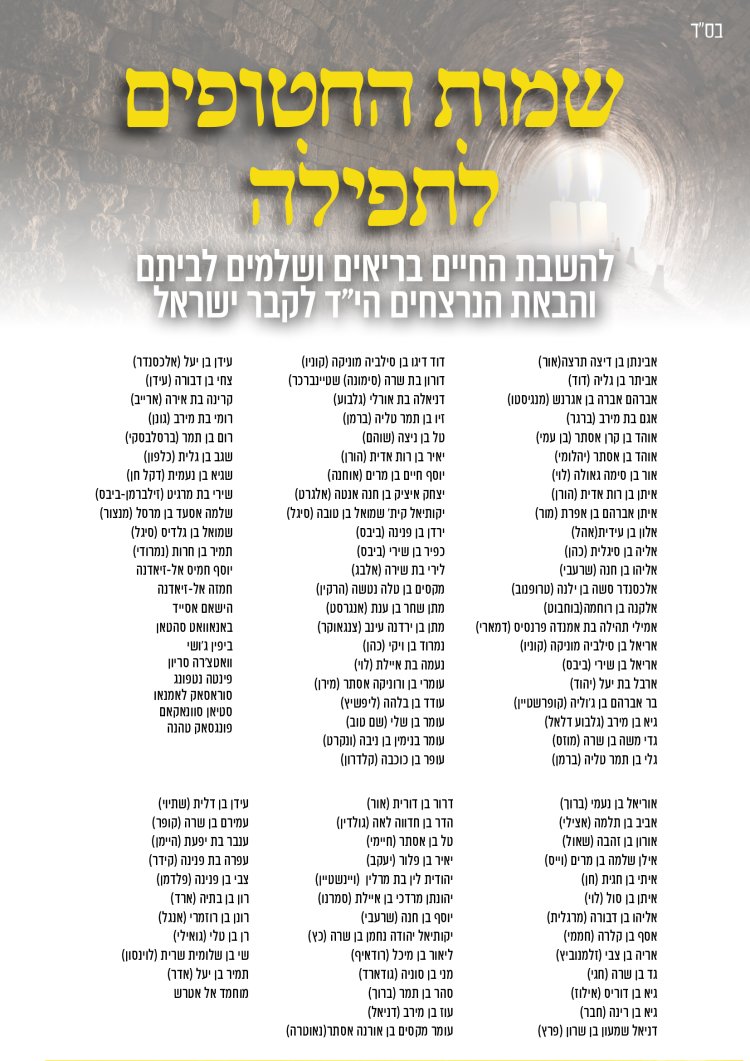Living with Uncertainty: A Mother's Quest for Her Son's Return
In a harrowing wait, Ayelet Samenro, mother of the abducted Yonatan Samenro, refuses to accept that her son isn't alive. She calls for a global Shabbat focused on the return of the hostages.
 Yonatan Samenro
Yonatan SamenroFor over 400 days since the war broke out, Ayelet Samenro, mother of the abducted Yonatan Samenro, has struggled to function due to overwhelming stress and anxiety. However, she notes that this past week has been particularly intense.
"I haven't slept at all during the nights for a whole week," she states, "I feel genuine chest pains, bodily stress, and extreme anxiety. Occasionally, I retreat into myself, imagining 'how Yonatan will look, in what context will it happen? How will I receive an unexpected call from Tel Hashomer saying 'Yonatan is with us'? My thoughts lead me to both good and bad places, and these days are filled with immense pressure and a terrifying fear of what's to come. The more talks of a deal sound serious and possibly imminent, the more my anxiety grows, along with an uncontainable fear and excitement."
 Ayelet Samenro with her son Yonatan
Ayelet Samenro with her son YonatanNeither Here Nor There
For the Samenro family, anticipation isn't just about the potential release of Yonatan with Hashem's help soon. It's also the anxiety about resolving more than a year of uncertainty.
"Yonatan's status is unknown," his mother clarifies. "Although a committee declared he was killed, our investigation led us to understand there was no concrete basis for their conclusion, so we don't accept it."
Ayelet pauses, recalling that unforgettable morning on Simchat Torah: "Yonatan was at a party with friends, and at 6:29 am when rockets and sirens started, they got in a car to head home. They were among the first to leave the party area but were stopped by a police officer who advised them to seek shelter from rockets rather than move forward. As a result, they turned back and reached Kibbutz Be'eri, just as terrorists arrived there.
"The terrorists fired on their vehicle, then proceeded into the kibbutz. Only about two hours later, looters dragged Yonatan and his friends from the car to the sidewalk, stealing everything and the car itself. After some time, a white Jeep with two terrorists arrived and abducted only Yonatan while leaving his friends lifeless on the ground. This is how he was kidnapped to Gaza."
Ayelet notes that the committee explained it was impossible for Yonatan to be alive, as surviving two hours was unlikely, thus concluding his death without real on-ground evidence.
How did you learn the details of what he went through so accurately?
"Security sources provided the details based on videos, mainly from the kibbutz's security cameras that documented the abduction. However, the video doesn't show where Yonatan was shot or his condition. That's why we don't accept his death as certain, as it's all based on a video. We've heard plenty of war stories where people thought dead have miraculously recovered."
When was the last time you spoke with Yonatan?
"The last time was on the evening Yonatan went to the party, when I dropped him off at the meeting point with his friends. In the morning, when the first siren sounded, I tried calling him, but he didn't answer. A friend with him in the car spoke to his parents, explaining they were heading to Tel Aviv. He then said they were 'approaching a shelter,' and that’s the chilling part — they believed they were safe in Be'eri while actually heading into danger, only for the call to end moments before they were shot at."

Hold on to Hope
Asked to recount their last year, Ayelet responds heartfeltly, "We've experienced deep longing and immense grief. Words cannot express our emotions amidst the terrible uncertainty concerning our son's condition. Consider what it's like when asked to observe Shiva without indisputable evidence. Our hearts break anew each day.
"Amid days where we oscillate between sorrow and hope, we constantly hear of deals categorizing people as 'alive' or 'dead.' And in my mind, I think, 'They speak of my son as if he's dead, though no one truly knows.' It's as if we've received the toughest hand: our son is both alive and dead. We're not mourning, but the hope is incomplete. Yonatan isn’t the only one in such a state; I know of at least three similar cases where families refuse to accept this without proof."
What do your day-to-day activities look like? Have you returned to any kind of routine?
"I haven't resumed normalcy, but I have returned to work. Unlike most parents, I insisted on going back to work because I needed mental engagement. Focusing solely on thoughts of Yonatan threatened to break me, and work provides a sort of escape. But, it's not a true routine, and often during my workday, I find myself clinging to composure, wondering why I'm in an office when my thoughts are only with Yonatan. Our minds are with him, yearning for his return every moment — 24/7."
What's your source of strength in this impossible situation?
"First and foremost, it's Yonatan himself. He's my son, the most precious to me in the world, so naturally, I can't let this go. I must continue, act, fight, and brainstorm new ideas that might help. Furthermore, hope sustains me and provides strength. I often meet with families of other hostages and see that among them are parents projecting only depression and pessimism. They lack hope, speak only of the worst, and see only darkness. In these moments, I tell myself, 'I'm lucky to have hope because it allows me to view things differently. Even if I'm deluding myself, at least it offers strength in this chaos."
Additionally, it's clear that the people of Israel provide a lot of support and hope. "I have the opportunity to lecture in various places," Ayelet notes, "and after my talks, people always approach, surround me with supportive comments and kind words. At one recent lecture, someone stood aside rather than approach. Eventually, I asked, 'Are you waiting for me?' He replied, 'It's alright, I just wanted to share that before the state was established, there were also abductees, and my grandfather was among them. Grandma was informed he wasn't alive, and everyone mourned him, yet during a prisoner return, they were surprised to see him walking. That story gave me incredible strength to keep believing and hoping."

In the Spirit of Jacob Our Patriarch
These days, Ayelet is moved by thoughts of the upcoming Shabbat, Parshat Vayeshev, designated as "Shabbat for the Return of the Hostages" worldwide under the theme "I seek my brothers."
This initiative, backed by various organizations including Hidabroot, Kisufim, Ayelet HaShachar, and Forum Tikvah, calls on Jews in hundreds of communities in Israel and abroad to light a special candle on Friday evening for the hostages and to publicly recite the names of the hostages at the conclusion of "Lecha Dodi" and add as many prayers, Psalms, and good deeds in their merit as possible.
"I'm not religious, but personally, I connect deeply to this week's Torah portion, read this coming Shabbat," notes Ayelet. "The story recounts how Joseph's brothers told their father that a wild beast had devoured Joseph, yet Jacob refused to mourn, believing Joseph lived, much like my belief in our Yonatan. The continuation of that story in Egypt mirrors ours, as Yonatan and other hostages have been in Gaza for over a year. I deeply wish for a similar ending for us — a joyous reunion with Yonatan soon, and coincidentally, Yonatan's father is also Jacob."
Ayelet personally urges as many people as possible to join this crucial initiative: "Like many in Israel, I feel this war erupted amid the chaos in the country and our inability to accept one another. I'm confident that learning to embrace, accept, and love will reveal that everything is resolvable without conflict and hatred. That's why it excites me to see the initiatives emerging from the religious community. Repeatedly, I see this community extend open arms, conveying: 'It's fine, be who you are, behave how you wish, you're still our brothers.'
"This upcoming Shabbat, they'll do it again, in such a moving way — leaving the synagogue and symbolically stating: 'We've left what defines us so distinctly, and now we're all together under the open sky, with all of us holding the same prayer in our hearts and souls.' I think even a non-believer, witnessing such a gesture, can't help but join. No demands are made — no yarmulke, synagogue, or minyan — just go outside and convey the message: 'Just stand, pray, and request.' And may the prayers be received favorably."
To download the file with the names of the hostages, click here>>

